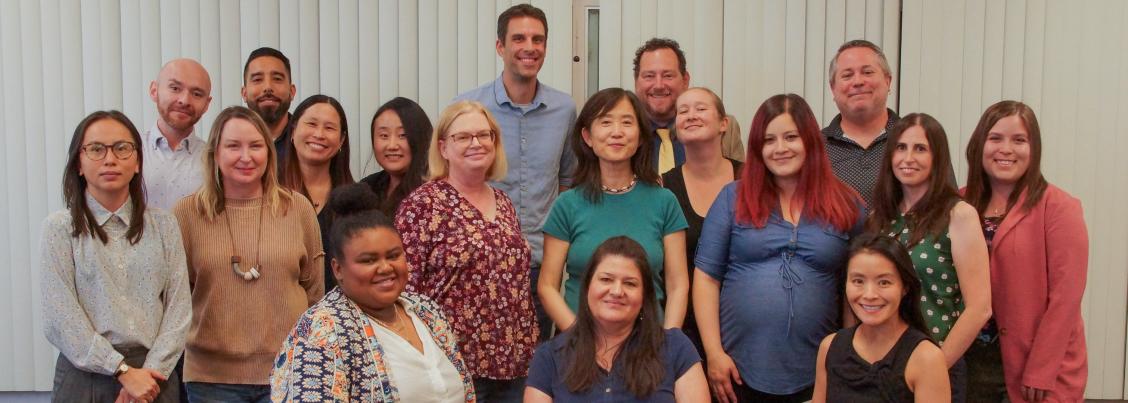
Biography
Education
- Ph.D. University of California, Los Angeles
- M.A. University of California, Los Angeles
- B.A. Pomona College
Specialty Areas: Language development.Bilingualism Heritage language loss and maintenance. Language and cultural identity.
Courses Taught
- PSY 313/L - Developmental Psychology
- PSY 462 - Language Development
- PSY 495RC - Community Research Seminar
- PSY 495XC - Community Research Seminar II
Selected Publications and Presentations
Au, T. K., Oh, J. S., Knightly, L. M., Jun, S.-A., & Romo, L. F. (2008). Salvaging a childhood language. Journal of Memory and Language, 58, 998-1011.
Au, T. K., & Oh. J. S. (2009). Korean as a heritage language. In P. Li (General Ed.), Handbook of East Asian Psycholinguistics, Part III: Korean Psycholinguistics (C. Lee, G. Simpson, & Y. Kim, Eds., pp. 268-275). London: Cambridge University Press.
Oh, J. S., Au, T. K., & Jun, S.-A. (2009). The nature of childhood language memory: Korean adoptees learning Korean as adults. In J. Chandlee, M. Franchini, S. Lord, G.-M. Rheiner (Eds.), Proceedings of the 33rd Annual Boston University Conference on Language Development (pp. 391-397). Somerville, MA: Cascadilla Press.
Oh, J. S. & Fuligni, A. J. (2010). The role of heritage language development in the ethnic identity and family relationships of adolescents from immigrant backgrounds. Social Development, 19(1), 202-220.
Oh, J. S., Au, T. K., & Jun, S.-A. (2010). Early childhood language memory in the speech perception of international adoptees. Journal of Child Language, 37(5), 1123-1132.
Oh, J. S. & Nash, B. A. (2014). Adult Spanish language learners: A comparison of heritage language learners and second language learners. Heritage Language Journal, 11(1), 29-44.Patihis, L., Oh, J. S., & Mogilner, T. (in press). Phoneme Discrimination of an Unrelated Language: Evidence for a Narrow Transfer but not a Broad-Based Bilingual Advantage. International Journal of Bilingualism.
Research Interests
My research interests center around the development and experiences of language minority populations in predominantly monolingual environments such as the U.S. These children and adults come from cultural backgrounds in which a heritage language (a language other than the mainstream or dominant language) is spoken. I am particularly interested in the following aspects of linguistic minority experiences:
Heritage Language Development, Maintenance, and Loss: Linguistic minority children often grow up speaking a heritage language at home while learning the mainstream language at school. One of my research interests is in better understanding linguistic minority children's bilingual language development; in particular, how the two languages develop in relation to one another, especially as children become exposed to the mainstream language in school. I have also been studying the consequences of heritage language loss, especially for family relationships, cultural identity, and psychological well-being in linguistic minority adolescents and college students.Dual-Language Immersion in Early Childhood: Dual-language immersion programs provide the opportunity for both language minority and majority children to develop and maintain proficiency in two languages. I have been involved with several community-based organizations in Los Angeles in the effort to advocate for high quality dual-language immersion programs and in the development of models of dual-language immersion for use in early childhood classrooms.
Adult Heritage Language Learners: As a result of the rapid loss of heritage languages, many linguistic minority adults find themselves with limited or no heritage language proficiency. Some decide to take language courses in their heritage language as adults. I have been investigating how early experience with a language, even when limited to the early childhood years, may help the adult language learner. In particular, we have been studying whether, and how, these adults can later access their memory for a childhood language to help them (re)learn the language as adults. We have investigated these questions in adults from immigrant backgrounds, as well as adults who were adopted from Korea to the U.S. into monolingual-English speaking homes as young children.




